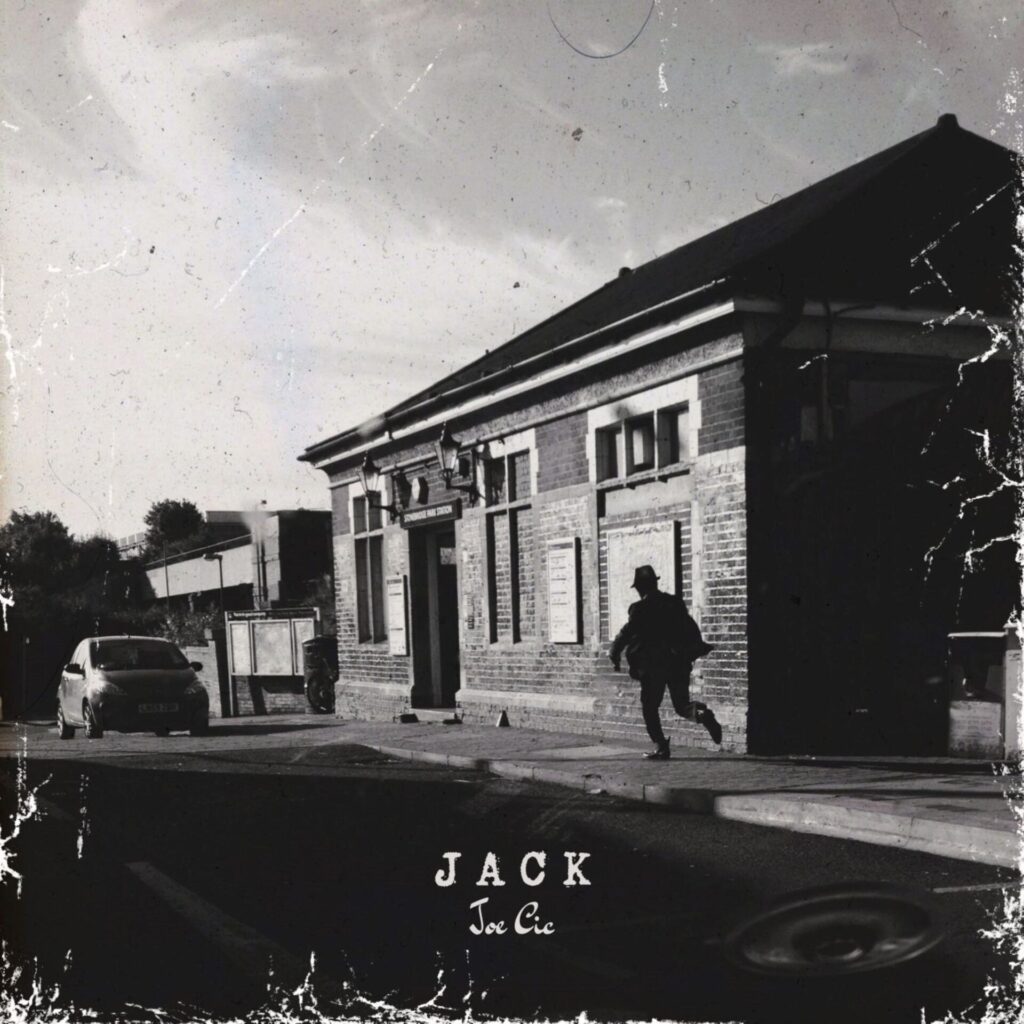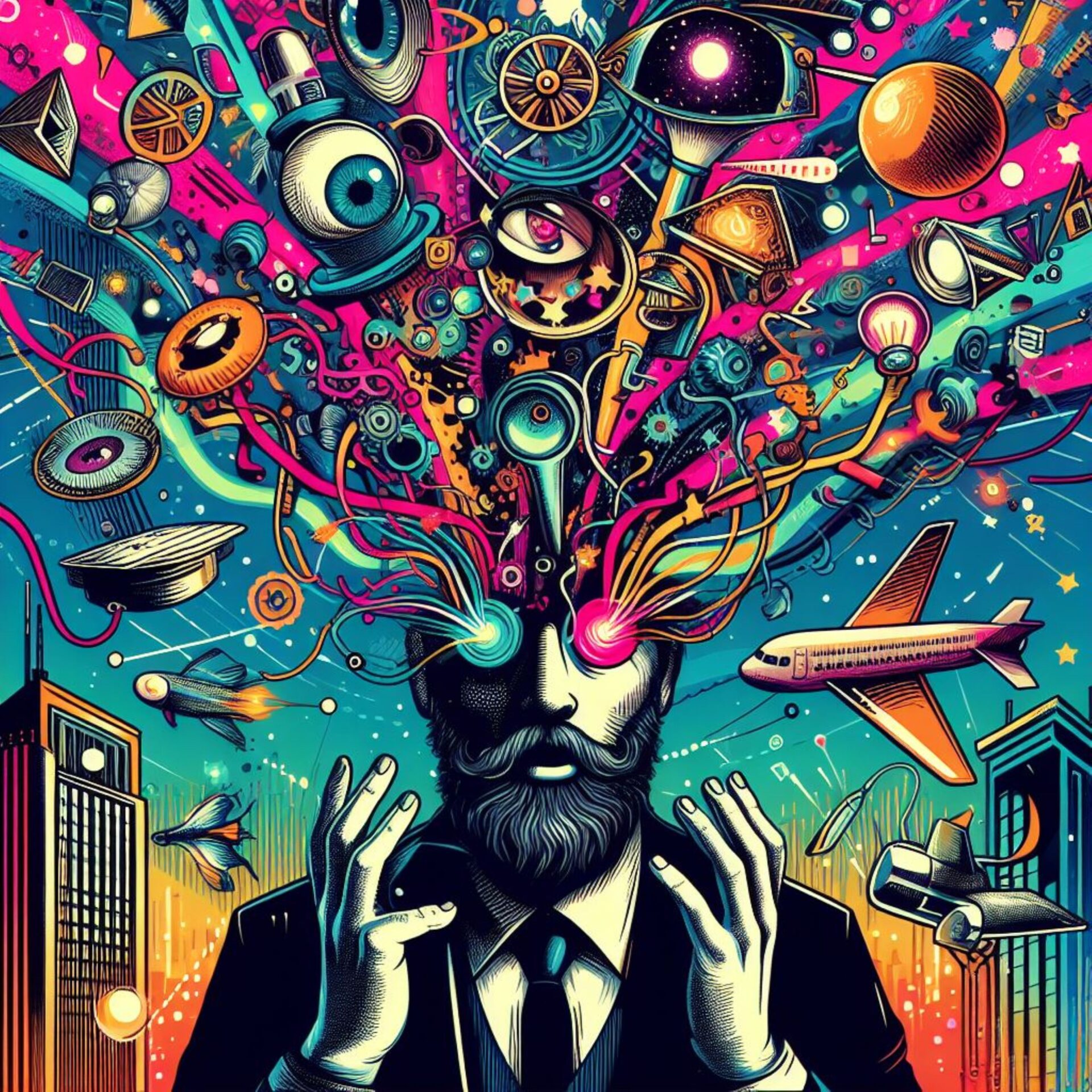The story of the song JACK revolves around a man who has lost all faith in life after experiencing love-related trauma. The artist chose the Gypsy vibe because it’s effervescent and nostalgic at the same time—like dancing with rage and tears. Check out the exclusive interview below:
1. Can you tell us a bit about where you come from and how it all got started?
JOE CIC: Ciao, and thank you very much for featuring me on your blog. I’m Italian and hail from the historic city of Rome. My musical journey began quite early when I was around 8 or 9 years old. I was visiting a friend’s home, whose father was a musician. It was there that I laid eyes on it for the first time – a cream-colored Fender Stratocaster, just like the one Jimi Hendrix played. That moment marked the beginning of my musical path, for better or worse.
2. Did you have any formal training or are you self-taught?
JOE CIC: Indeed, I devoted much of my adolescence to studying guitar and music theory, and I’ve continued that practice to this day. I view music as a living language that’s in a constant state of evolution, and I strive to keep abreast of its changes. Additionally, I’m quite inquisitive by nature and can become very engrossed in the technicalities of music, almost to a nerdy extent.
3. Who were your first and strongest musical influences and why the name ‘JOE CIC?
JOE CIC: Let’s start with the simpler question. My birth name is Giuseppe Ciccone, and ‘Joe Cic’ is a shortened version of it. I thought it would be easier for people to remember. Plus, the name ‘Joe’ is a nod to Jimi Hendrix’s iconic song “Hey Joe.” As for my musical influences, it’s quite a challenging question! While I’m clearly a Hendrix enthusiast, my music doesn’t precisely align with his style. I enjoy a wide spectrum of genres, from jazz and rock to pop and blues, making it difficult for me to pinpoint my exact influences.
4. What do you feel are the key elements in your music that should resonate with listeners, and how would you personally describe your sound?
JOE CIC: Songwriting fascinates me because it’s a multifaceted art form—beyond three dimensions, even. It involves a careful balance of lyrics, music, and arrangements. If you’re the vocalist for your creations, you also need to embody the song’s persona. The challenge, and what I aim for, is to ensure all these elements work in harmony, pursuing a single purpose. I hope this sense of unity resonates with my audience. Whether it does, I can’t be certain—yet I remain optimistic. As for my sound, it’s a rebellion against the clinical precision of technology. I believe in a sound that’s raw, gritty, and authentic. In essence, I’d rather have music that’s slightly out of tune but filled with soul than the reverse—perfectly pitched but devoid of passion
5. For most artists, originality is first preceded by a phase of learning and, often, emulating others. What was this like for you? How would you describe your own development as an artist and music maker, and the transition towards your own style, which is known as POP?
JOE CIC: When I come across articles or videos of people who manage to write a song every day, my emotions run the gamut. Initially, I feel admiration, but then, as I compare myself to them, I end up feeling quite foolish. Eventually, I get frustrated and have to step away. My journey in music development has been somewhat unconventional. Rather than starting by emulating more seasoned musicians and songwriters—a path I’ve tried but found dreadfully dull—I’ve always drawn from the turmoil within me. Through countless trials, I’ve endeavored to refine this internal chaos into something palatable. This method may be time-consuming, but in the end, it’s incredibly rewarding for me.
6. What’s your view on the role and function of music as political, cultural, spiritual, and/or social vehicles – and do you try and affront any of these themes in your work, or are you purely interested in music as an expression of technical artistry, personal narrative, and entertainment?
JOE CIC: Music for me is the most powerful tool of communication and it’s a world inside the world, therefore its role must include all the above functions and probably more.
7. Do you feel that your music is giving you back just as much fulfillment as the amount of work you are putting into it or are you expecting something more, or different in the future?
JOE CIC: My aspiration isn’t about becoming a famous or wealthy songwriter; rather, my dream is to simply lead a normal life through making music. Each song I complete is its own adventure, and during the process, I experience an emotional roller coaster that takes me from the depths of despair to the heights of elation. The act of creating music itself already provides me with immense emotional satisfaction. The one thing I’m still striving for is to share my music more widely and connect with people through my message.
8. Could you describe your creative processes? How do usually start, and go about shaping ideas into a completed song? Do you usually start with a tune, a beat, or a narrative in your head? And do you collaborate with others in this process?
JOE CIC: When inspiration strikes, all it takes is picking up my guitar and letting the ideas flow. If that initial spark isn’t there, I adopt a more systematic approach, like setting up a groove in my DAW to jam over until I stumble upon something that catches my ear. Sometimes, listening to different music can spark inspiration, or I might jot down my thoughts on paper. Other times, I’ll watch a movie or step outside to seek out scenarios that could ignite my creativity. If none of these strategies work, I’ll simply call it a day and divert my attention to other activities. I firmly believe that forcing creativity, especially if you’re looking to make a career out of it, isn’t beneficial.
9. What has been the most difficult thing you’ve had to endure in your life or music career so far?
JOE CIC: Life presents its challenges to everyone, and without delving too deeply into personal details, I’d say the toughest part for me has been seeking harmony between my inner world and the world around me. The hardest thing has been to break free from the stereotypes that try to box me in and prevent me from growing as an individual.
10. On the contrary, what would you consider a successful, proud or significant point in your life or music career so far?
JOE CIC: I take pride in myself every time I bounce back from a setback and can honestly acknowledge that I’ve learned something valuable from it. In terms of music, the most rewarding experiences for me are writing and performing my own songs. That’s when I truly feel accomplished
11. With social media having a heavy impact on our lives and the music business in general, how do you handle criticism, haters, and/or naysayers in general? Is it something you pay attention to, or simply ignore?
JOE CIC: Your question brings a smile to my face—not because it’s trivial, but because I’m just beginning to establish a social media presence for my music. At this point, my circle of ‘followers’ consists mostly of family members and close friends, so I’ve yet to face the challenge of dealing with haters or naysayers. I must admit, I’m not particularly fond of social media; it can be a drain on one’s creative energy and time. However, it’s a reality of contemporary life and the music industry. Sooner or later, you’re faced with a choice: to embrace the digital arena or to stay away from it. As for myself, I’m currently navigating this new territory.
12. Creative work in a studio or home environment, or interaction with a live audience? Which of these two options excites you most, and why?
JOE CIC: Music at the end of the day is a performing art, so I choose the live concerts without thinking too much 😊
13. Do you think is it important for fans of your music to understand the real story and message driving each of your songs, or do you think everyone should be free to interpret your songs in their own personal way?
JOE CIC: I don’t believe it’s necessary for listeners to be privy to the backstory of each song. To draw a parallel, it’s like going on a date; you don’t need to know what the other person did before the date to appreciate and enjoy the time you spend together. Similarly, with music, the beauty lies in the personal connection and interpretation that each listener experiences.
KEEP IN TOUCH:
SPOTIFY | YOUTUBE

